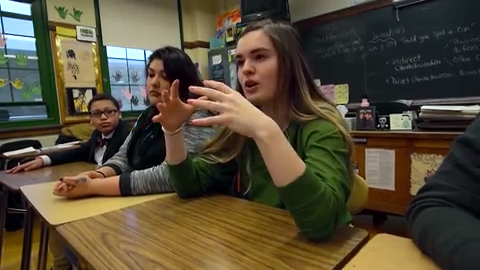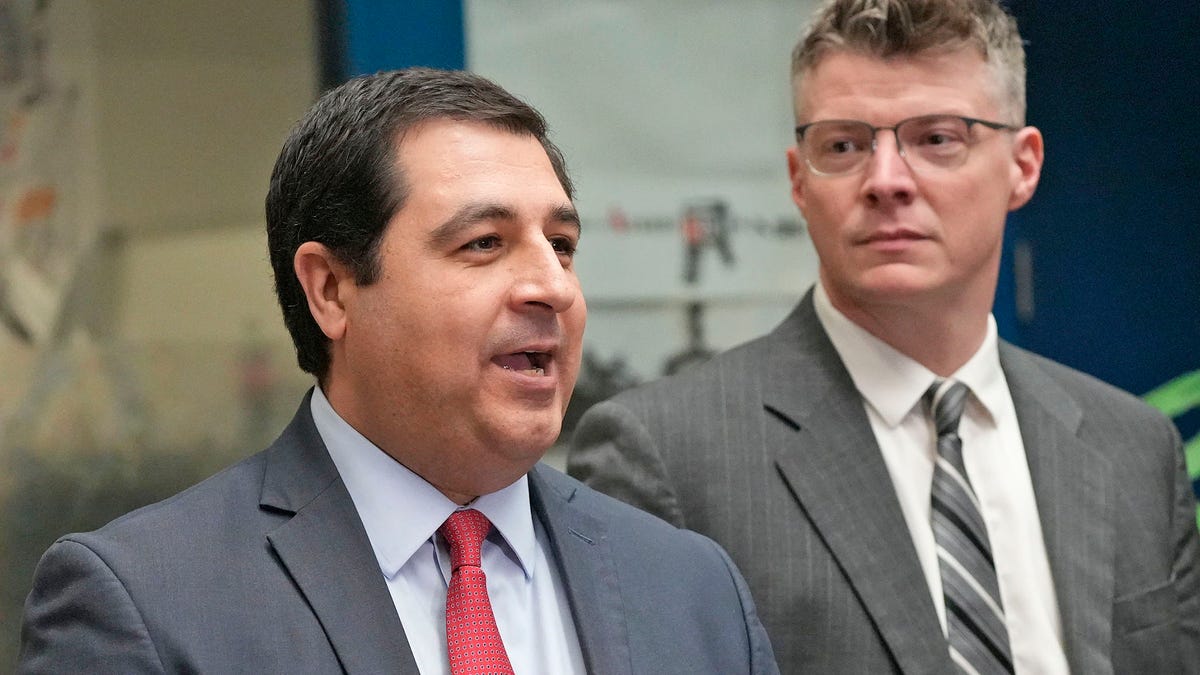
Peer to peer: ‘Don’t give up on yourself’
Students at Rufus King International High School open up about their mental health challenges and share advice for their peers.
Milwaukee PBS
A federal judge in Seattle ruled Oct. 27 the Trump administration can’t cancel $1 billion in grants meant to address the shortage of mental health professionals in schools, including $10 million in Wisconsin.
The ruling came nearly four months after Wisconsin Attorney General Josh Kaul joined a multistate lawsuit suing the Trump administration over the abrupt cancelation of the grants, which were meant to support five years of bolstered mental health services across 15 states.
The grants would have allowed for Wisconsin’s largest expansion of K-12 mental health programs to date.
In a press release issued Oct. 28, Kaul described the Trump administration’s move to withhold the funds baffling and unlawful. The ruling, he said, was a “win for the safety and well-being of students in Wisconsin and elsewhere.”
In her ruling, Judge Kymberly Evanson found the U.S. Department of Education likely violated federal law when it sent notices to the Wisconsin Department of Public Instruction and other states in April ― less than a year into the grant cycle. Evanson determined the move was likely arbitrary and capricious, a legal term where a party is “compelled to guess at the theory underlying the agency’s actions,” according to the court order.
Additionally, Evanson found evidence the federal agency’s action has done “irreparable harm” to states, in the sense that they couldn’t recover financially from the move. Further, states presented evidence that students in rural and underserved communities would suffer from the sudden lack of mental health professionals in schools, as would the staff laid off.
“It is unsurprising that discontinuing Grant funding mid-project would cause harm to the States’ interests. Congress created these programs to address the states’ need for school-based mental health services in their schools, and has repeatedly reaffirmed the need for those services over the years by reauthorizing and increasing appropriations to this program,” Evanson wrote in her motion.
The grants were established with bipartisan Congress after the 2018 Parkland, Florida, school shooting ― the deadliest high school shooting in U.S. history ― and expanded after the 2022 Uvalde, Texas, school shooting, which was the deadliest school shooting in Texas history.
Its purpose was to permanently hire 14,000 mental health professionals into schools that needed it the most.
Although the federal department took issue with programs that educated mental health professionals about systemic racism and trained therapists to focus on race-related stress and trauma, the defense counsel admitted at oral arguments he “had no information about how the Department decided which Grants to discontinue, and that the record contains none.”
Instead, the defense counsel argued no further explanation was required for the abrupt cancelation, which Evanson said was not persuasive.
Wisconsin Department of Public Instruction had used only $2.2 million of the $10 million it was awarded. It had gone toward creating more options for counseling certification, developing “grow your own” university programs for future mental health providers who would work in schools, and offering statewide training and professional development to improve retention rates of mental health professionals.
The funding cuts have set back efforts to train 24 school psychology graduates at the University of Wisconsin-Madison, who were set to work in high-need schools after graduation.
The university said 19 of those students were on track to graduate, but that the projected loss of more than $2.8 million would mean some students wouldn’t be able to finish their degrees, or couldn’t afford to work in the schools after graduation.
Evanson named the University of Wisconsin-Madison and the Wisconsin Department of Public Instruction among the states where the order applies.
Superintendent Jill Underly described the ruling as a victory for Wisconsin students, families and communities. The decision to cut grant funding, she said, was “short-sighted and harmful to Wisconsin students.”
“At a time when our kids are facing unprecedented mental health challenges, investing in school-based mental health and staffing is critical. The DPI used this funding to help districts place more counselors, social workers, and psychologists directly in schools — supporting students where they need it the most,” Underly said.
According to the latest Youth Risk and Behavior Survey, six in 10 Wisconsin high school students said they have felt anxious, depressed, even suicidal in the last 12 months.
Due to the government shutdown, the federal Department of Education could not be reached for comment on whether it would appeal the decision.
Chris Bucher, the communications director for the state Department of Public Instruction, said the state agency is waiting for additional guidance on how or when the funds will be restored. Given the shutdown, it’s unclear when that will happen.
